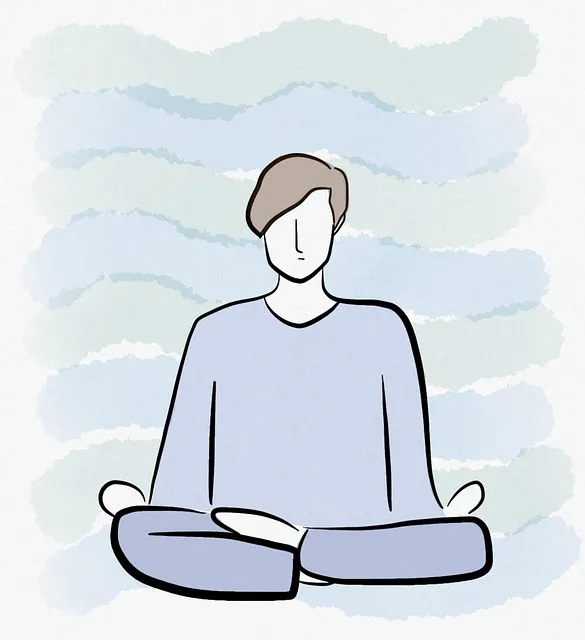Kaiser Permanente behavioral health providers in Castle Rock offer culturally sensitive mental wellness groups that prioritize peer support, self-care routines, and evidence-based practices. These inclusive sessions foster community connection, reduce stigma around mental health, and enhance the holistic well-being of participants, reflecting Kaiser Permanente's comprehensive care model. Facilitators play a vital role in guiding these efforts, significantly contributing to the behavioral health network's success.
Mental wellness groups play a pivotal role in Kaiser Permanente behavioral health services, particularly at their Castle Rock location. These supportive communities empower individuals navigating mental health challenges through shared experiences and peer-to-peer support. This article delves into effective facilitation techniques used by Kaiser’s dedicated professionals. From fostering cohesive group dynamics through icebreakers and collaborative activities to employing evidence-based conflict resolution strategies, facilitators ensure a safe space for growth. Discover how these methods enhance the journey towards mental wellness for Castle Rock residents seeking guidance.
- Understanding Mental Wellness Groups: A Cornerstone for Effective Facilitation
- – Defining mental wellness groups and their significance in behavioral health
- – Key roles and responsibilities of facilitators at Kaiser Permanente Castle Rock
Understanding Mental Wellness Groups: A Cornerstone for Effective Facilitation

Mental wellness groups are a powerful tool for individuals seeking support and connection while fostering a sense of community. Facilitating such groups requires a nuanced understanding of mental health dynamics and diverse participant needs, especially in a setting like Castle Rock where Kaiser Permanente behavioral health providers cater to a varied population. These groups offer a safe space for individuals to share experiences, build resilience, and learn coping strategies from one another.
Effective facilitation involves creating an inclusive environment that encourages active participation while prioritizing cultural sensitivity in mental healthcare practice. By integrating Self-Care Routine Development for Better Mental Health and Stress Management Workshop Organization techniques, facilitators can enhance group dynamics and promote positive outcomes. This approach not only benefits the individuals within the group but also contributes to the overall well-being of the community, reflecting the comprehensive care model provided by Kaiser Permanente behavioral health providers in Castle Rock.
– Defining mental wellness groups and their significance in behavioral health

Mental wellness groups play a pivotal role in promoting holistic behavioral health within communities, especially in areas like Castle Rock where access to Kaiser Permanente behavioral health providers is readily available. These supportive gatherings facilitate open discussions, foster peer connections, and empower individuals navigating various mental health challenges. By providing a safe and non-judgmental space, group members can share experiences, offer mutual support, and learn valuable coping strategies.
Through effective facilitation techniques, these groups encourage active participation, enhancing communication strategies that foster resilience building. Members learn to establish self-care routines tailored for better mental health, gaining practical tools to manage stress, anxiety, or depression. This collective approach not only benefits the individuals but also contributes to a stronger, more resilient community.
– Key roles and responsibilities of facilitators at Kaiser Permanente Castle Rock

At Kaiser Permanente Castle Rock, facilitators play a pivotal role in supporting mental wellness initiatives. Their primary responsibility is to create and maintain a safe, inclusive, and therapeutic environment for group sessions focusing on various aspects of mental health. These professionals are trained to guide participants through discussions, activities, and exercises designed to enhance coping skills development. They ensure every voice is heard, fostering an atmosphere where individuals feel comfortable sharing their experiences, challenges, and victories in managing mental illness.
In addition to facilitating group conversations, these facilitators lead stigma reduction efforts within the community. By normalizing conversations about mental health, they help break down societal barriers associated with seeking support. Furthermore, risk management planning is integral to their practice, ensuring professionals are equipped to handle sensitive topics and potential crises while providing evidence-based interventions. Their dedication contributes significantly to the overall well-being of Kaiser Permanente’s behavioral health provider network in Castle Rock.
Mental wellness group facilitation plays a pivotal role in enhancing the effectiveness of Kaiser Permanente behavioral health services in Castle Rock. By understanding the dynamics and needs of these groups, facilitators can create safe spaces that foster connection, support, and growth. The techniques outlined in this article equip Kaiser Permanente behavioral health providers with valuable tools to navigate complex situations and promote mental wellness among their communities.






